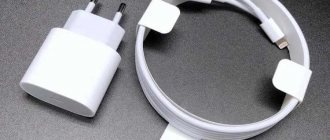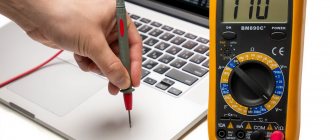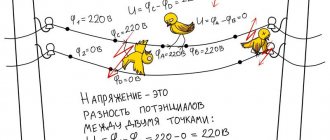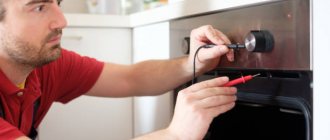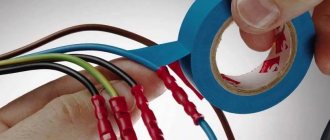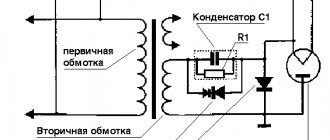Almost all private houses and many city apartments are equipped with special water heating devices that provide an uninterrupted supply of hot and cold water to residents. Of course, this is very convenient. But sooner or later, the owners wonder: why does a seemingly serviceable boiler produce an electric shock?
If this happens, you should quickly find and eliminate the cause of the current leakage. In addition, it is important to remember that the operation of such a heating element is prohibited.
Damaged heating element parts
First of all, it is important to note that a boiler can shock in different ways:
- Through the water. In fact, this problem does not pose a serious threat. When designing the boiler, it was taken into account that there will always be water in it. Therefore, the equipment is made in such a way that the current, when broken, is more likely to cause a slight tingling or tingling sensation rather than strong discharges that can harm a person. It will not be difficult to detect a breakdown: a person will feel an unpleasant tingling current.
- Through the body. In this case, there is little danger, since the causes of failure usually lie in improper grounding. If such a situation occurs, the equipment should be turned off immediately and a specialist should be called. The difficulty is also that detecting a malfunction is quite difficult, and sometimes even impossible on your own.
Boiler repair
If the heating element cannot be repaired, it is replaced with a new one.
Operating procedure:
- The unit is disconnected from power.
- The boiler is removed from the wall.
- Remove the bottom panel and record the schematic arrangement of wires and contacts.
- Disconnect the conductors and remove the heater and base.
- If cleaning is possible, get rid of scale.
- If a layer of deposits has damaged the metal, replace the element.
The parameters of the new heating element must correspond to the previous one. The location of the magnesium anode is taken into account.
If you need to install grounding for normal operation, organize a circuit . In a private house, this is a metal triangle, the corners of which are equipped with pins for driving into the ground. The side size varies from 1.0 to 3.0 m.
Weld the contour from the corner, connect it on the sides with a corner or strip. A trench is dug from one corner to the house panel to connect the entrance to the house with the grounding loop. In the apartment, the connection occurs through the neutral core. This wire goes from the panel to each outlet.
All power receivers must have an additional contact for connection to the grounding conductor.
Why does tap water give me an electric shock?
creativecommons.org
We assure you right away that this problem does not affect the operation of most devices and does not harm humans. Therefore, do not be afraid to install the device after a problem occurs or after reading this article. Even the manufacturer took into account all the points, so if the boiler gives an electric shock, it does not harm anyone.
So, if you feel that the water from the boiler is electrifying while taking a bath, shower, or when you simply open the tap, then you need to immediately look for the problem. There are several of them:
Incorrect installation. Characterized by the incompetence of the technician installing the boiler. However, this can arise not only due to “crooked hands”, but also when using low-quality components. For example, the cheapest wires were purchased, or the cross-section was damaged. If the problem of the boiler, which generates current through the tap, looks like just poorly connected wires, turn off the power and use a screwdriver to firmly secure the bundle of wires together.
Damage to the heating element. All equipment requires additional maintenance and replacement of components. Don’t think that you installed the device for at least 10 years and forgot about it. This attitude will one day come back to haunt you, and in a very unpleasant way. This is especially true for those houses where hard water flows from the tap, creating a lot of scale (you can track it by the kettle: if there is a lot of rust and red scale, then this is your situation). The heater gradually loses its protective mechanisms and shells, beginning to come into contact with current. This is the reason why the water heater emits current through the water. You can get rid of the problem like this:
- Turn off the boiler.
- Drain the water and turn off the taps.
- Remove the cover of the device and find the heating element.
- Remove the old one and replace it with another one. It is advisable that the part be from the same manufacturer as the equipment.
As you can see, there is nothing supernatural in setting up the device, you just need a little patience and effort. But still, you shouldn’t refuse the services of an electrician.
Improper fastening of the electrical part of the boiler can also cause the water heater to discharge current through the water. It’s not at all difficult to get confused about where “zero” is and where “grounding” is, even for a professional. To eliminate the problem that the boiler is electrocuted through water, it is necessary to reverse the wiring connections. Basically, the grounding cable is yellow-green in color. After installation, check the entire system for the problem. If nothing has changed, return the wires to their places and look for the problem in another area.
Preventive measures
After installing the water heater, you should not forget about its maintenance. To prevent the internal spiral from being exposed for contact of electricity with water, you need to remember the hardness of the tap fluid. The volume of impurities and rust is reduced by installing filters or several modules to organize a cleaning system.
Precautionary measures:
- Water heaters are powered from a separate main with a separate automatic circuit breaker.
- Check the wiring connection to the boiler (each wire is connected by three wires to the corresponding contacts of the panel).
- Remove the tank in a timely manner to descale it.
- Regularly inspect the wiring and install a protective disconnect device.
The RCD immediately de-energizes the unit if a voltage leak occurs. The device will not replace grounding, but will prevent electric shock in a fraction of a second.
Causes of electrical leakage in a water heater
Believe it or not, the classic “neighbors are stealing electricity again” will not apply here. The situation is quite common and requires intervention in the water heating system itself or in related elements.
The first thing we do when the water begins to shock is to turn off the power to the device, wipe our hands with dry towels and call an electrician if we cannot figure out the situation ourselves. If you do not have knowledge in the field of electricity or are simply afraid to touch a faulty device, do not do anything so as not to complicate the situation for a specialist. But for a knowledgeable person or master, information is needed about how the boiler generates electricity. You need to look for the problem in two places:
- the boiler is electrocuted by the water heater,
- the boiler produces an electric current through the water.
When current is transmitted through water, the sensation occurs instantly. And if the problem is inside the device itself, then identifying it is not so easy. Let's look at everything in order.
Body punches
Such a malfunction is much more dangerous than electrified water. If there is even the slightest suspicion that the housing has become electrified and it has begun to give an electric shock, then you must immediately unplug the water heater from the outlet and call a technician to repair the device. It is quite dangerous to solve such a problem on your own.
Note! Most often, an electric shock through the body occurs due to poor grounding or serious damage to some part inside the boiler.
In both cases, only a specialist can establish the exact cause of what happened.
The lack of grounding in a room is the source of many troubles, because according to all operating rules, any electrical devices must be grounded. A familiar electrician or a person who knows well how best to do grounding in this particular case will help eliminate this trouble. Sometimes, instead of grounding, you can ground it using a suitable cable, which will also solve the problem.
Electric shock to the body
If the use of a boiler leads not only to an electric shock through the water, but also to electrification of the body, it is necessary to immediately turn off the power to the device and refuse to use it until an expert opinion is obtained. Only after repair will the safe operation of the device be possible.
In this case, proper grounding can help. Experts say that this eliminates several disadvantages at once:
- the danger of electric shock disappears;
- excess consumption of electricity is eliminated;
- the formation of corrosion on the heating element is reduced.
Additional safety can be guaranteed by installing an RCD. A professionally installed ground removes voltage from the surface of the device. Without a protective shutdown device, this process leads to destruction of the housing, malfunctions of the heating element, and false alarms of the electrical circuit breaker.
To summarize, we can say that if the tank shocked the owner at least once, this is a reason to think about checking it. A good specialist will be able to give an expert opinion and, if necessary, fix the breakdown.
Water flows from the water heater
In this situation, it all depends on the location of the fault:
- Poor grounding. This design is responsible not only for the safety of all electronics, but also for saving electricity consumption. Believe it or not, even less scale will appear! Therefore, we look for grounding (if there is one) and correct it. Well, or install it (how did you even live without it?).
- Damage to the inside of the boiler. What to do in a situation where the boiler is electrocuted? Just call a specialist. You can dig into every bolt yourself, at least until next year.
Instantaneous water heater and current
I completely renovated my apartment. The electrician (from the wires to the panel and in it, except for the meter) was replaced by a familiar 5th category electrician (he works at a thermal power plant, I think he knows his stuff). And so, with the next shutdown of hot water, I finally decided to install a water heater, and not just a simple one, but a flow-through one, because even from the creators (construction battalion workers) the bathroom was made of slate sheets, and I replaced the whole thing with plasterboard, because... and it’s simple, and faster, and I don’t know how to lay bricks, and a brick wall will take up more space. Therefore, the wall will not support an 80-liter storage tank, and there is no place to put a floor-mounted one. Well, here we go. And the electrician, in conversations between screwing in sockets, explained to me a little about what it is and how it is done with current. Well, I ran a three-core wire with a cross-section of 4 mm, copper. And he stuck it in the same places where the other wires of the same color fit, and installed the machine (32). By the way, the heater is AEG RMC 65/65E, maximum power 6.5 kV, about 30 A. (The RCD is good, so I’m not afraid of anything). And in the heater, I connected the blue wire to the socket with the letter N, and the l - white wire. I connected everything, turned it on... it worked, nothing even crashes. The wire gets warm, but not a little hot - warm, all around the perimeter. There is no electric shock from the water, the RCD works (I checked it once when I pushed a screwdriver in the wrong place). The house is still Soviet-built, something like a Khrushchev-Brezhnevka building, a five-story building, I’m on the second, the wiring in the panels is from that period, the meters too, the machines and the wires to the meter are new copper, 4 mm. The problem is this: the heater at maximum heating and the minimum pressure at which it turns on produces water at a comfortable temperature and a little less, but not HOT. In total, the pressure/6.5 kV should heat up more. True, for some reason the cold water flows so cold that you can’t hold your hand for more than 5-10 seconds. At the same time, when I turn on the water, the light dims a little, but if I turn on the electric kettle, nothing knocks out and the wires do not overheat. The machine from which the current flows is located farthest from the RCD, the very last along the jumpers. He told everything he could. And now a question: Why does the water heater produce such not very hot water (with minimal pressure and maximum power) (current has a concept of “current strength”, can it be to blame for the above symptoms)? Are the wires in the panel and riser to blame for this? If I call an electrician from the housing department (I have a second floor), then if I replace the riser up to my panel, will the situation improve? Where should the riser wires be replaced (to the basement, assembly or somewhere else)? Is the meter to blame?
PS: I have a VERY bad understanding of electrical engineering, so I’m sorry if I wrote something stupid above!
ZZY: I tested it in a minute, and with minimal pressure I managed to get water that I WANTED to stand on. But I still think that the output of hot water is small. A friend has a 4.5 kV heater, which is enough for everything, but here it’s 6.5. I blame the ice water and/or the shield and riser.
Electric shock through water
A perfectly working and recently purchased water heating tank suddenly begins to shock the owner with an electric discharge upon contact with the liquid. This is felt as light pricks on the fingertips that accompany a person when touching the mixer. It becomes clear that rinsing your hands with electrified water is a painful procedure. Every time the boiler owner opens the tap, he will feel fear. What could be the reason?
- The device was not grounded during installation. Carefully monitor the installation of a newly purchased boiler: lack of grounding can lead not only to injuries, but also to premature breakdowns.
- Malfunctions of the heating element in the tank, more specifically, the destruction of the protective shell of the element, which protects it from contact with liquid.
- Incorrect power connection. This could happen as a result of improper installation.
What should you do in this situation? If possible, refuse to use the tank until a specialist arrives. Only after a professional technical inspection can a conclusion be issued and a sequence of actions drawn up to eliminate the malfunction.
Failure of the heating element
One of the most common reasons why water shocks is a significant destruction of the protective layer of the heating element. This part ensures the functionality of the entire system, but has low power. Externally, the element looks like a simple metal tube. The main task of the heating element is to supply the electricity necessary to boil water. To perform these functions, it is equipped with a special nichrome thread. Possessing high conductive properties, this material provides the necessary heating of the liquid.
The heating element operates under critical conditions. Constant moisture that surrounds the heating element increases the risk of corrosion and, consequently, the formation of scale. A combination of factors leads to wear of the heating element and exposure of the nichrome thread. Being one of the best conductors, water with which nichrome interacts can produce an electric shock when touched.
Fixing this breakdown is quite simple. To do this you need:
- disconnect the boiler from the electrical network;
- drain all water from the storage tank;
- dismantle the used heating element and install a new part.
When selecting spare parts, you need to pay attention to their manufacturer. The ideal option would be to purchase parts from the same company as the tank itself. Experts do not recommend purchasing cheap, low-quality analogues.
Errors when connecting to the network
In rare cases, the root of the problem may be negligence during installation of the device. The water heater will begin to generate electric current if the technician has connected it to the power supply incorrectly. As a rule, the problem is identified at the performance check stage, but in some cases the error is discovered after a certain time. Reconnecting the wires connecting the tank and the electric meter will help fix the problem.
It is very important to adhere to all rules when installing and using a household appliance. Careless handling can lead to serious damage.
A malfunction can also occur if the connecting wiring was cheap or of poor quality. Its service life is quite limited, and it can only be used as a temporary replacement. Excessive cable wear not only poses a risk of electric shock, but can also cause a short circuit. For these reasons, experts urge not to skimp on the quality of wires.

